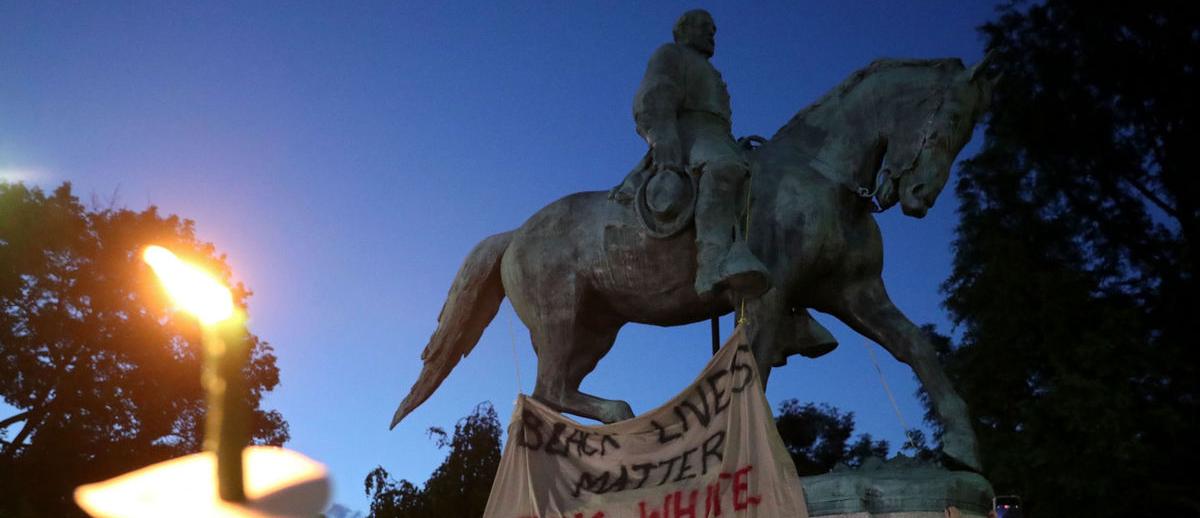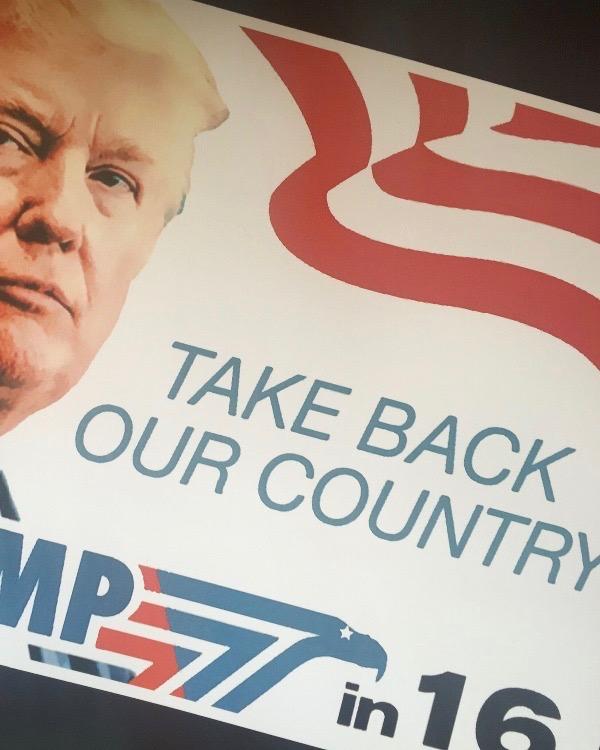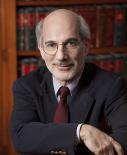America’s Divided Political Imaginary
archive


America’s Divided Political Imaginary
The polarization of the American electorate has been attributed to racism, sexism, greed, resentment, and a host of other social pathologies. It has also been attributed to globalization, automation, urbanization, and other economic and structural changes. There is some truth in all of these efforts to plot the causes of our political discontent. Different theorists will identify the causes in the context that they know best. This search for causes tends to see politics as a secondary phenomenon, as if politics is only the working out of interests and values formed elsewhere. Of course, politics does not stand alone, but neither is political identity reducible to these social and economic factors.
Politics in America has been a deep source of individual and collective identity. Americans have practiced a civil religion since before the Civil War. Lincoln spoke of a “reverence for law.” More broadly, the sovereign people have been imagined as a transhistorical collective subject that stands to our ordinary concerns as the sacred to the mundane. “We the people” has carried a claim on citizens that was deep and rich enough to support generations of sacrifice. Americans have revered their history of Revolution, Civil War, and the great wars of the 20th century. Pilgrimages were made to these markers of citizen identity: Valley Forge, Gettysburg, and even Omaha Beach. The saints of this civil religion include Washington, as the paradigmatic founder, and Lincoln, the sacrificial son.
The beliefs and practices of this civil religion are strained today. Vietnam remains a site of trauma to our political identity. Was it a war of sacrifice or a politics of senseless killings? Despite the sacrificial construction of 9/11, the wars in Iraq and Afghanistan are a long way from entering the mythical space of the sacrificial imagination. The foundation of American politics was, for a long time, sacrifice as practice and belief. Every town square is decorated with memorials to those who sacrificed. This is hardly surprising in a nation that traces so much of its traditions of belief and practice to Christianity. But where is the idea of sacrifice in today’s politics?
The American civil religion combined two distinct ideas: popular sovereignty and the rule of law. The manner of that union gave Americans a distinct way of imagining themselves. They imagined law—particularly the Constitution—as the product of their own authorship. The people gave the law to themselves. Apart from revolution, the sovereign people can do just one thing: author law. For this reason, there is no space for a legitimate, extra-legal politics in our national history. Law is everywhere for the simple reason that “We the People” is everywhere and always. The imagined relationship of popular sovereignty to law is captured in that of Revolution to Constitution. Revolution was the direct presence of the popular sovereign; constitution was the remnant and marker of that presence, left behind once the sovereign has retreated.
Because America has always defined itself as a nation of self-government through law, we don't notice the tension between "self-government" and "law." These two elements point to distinctly different moral grounds at the foundation of our political enterprise. Self-government appeals to an idea of autonomy: we the people must rule ourselves without interference or direction from outside. The rule of law appeals to an idea of justice. The promise of law is that it will treat each person equally and fairly. There is not one law for the rich another for the poor; not one for the powerful and another for the weak.

Looking at the experience of other nations, we recognize that self-government and the rule of law do not necessarily coincide. We see nations voting autocrats into office. Elections provide them legitimacy, even as they exercise rule without law. Elsewhere, we see that the rule of law does not necessarily rest on self-government. This is the story of the European Union, which strives for equal and fair laws but suffers a democracy deficit. Everywhere, the courts claim responsibility for the rule of law, and almost everywhere the courts are accused of not being democratic.
In the long history of the West, democratic self-government and the rule of law have more often been in conflict than they have been aligned. That is why Socrates famously disapproved of democracy. He thought the people would inevitably turn to authoritarians, who would claim to rule in their name. He might have been describing modern Turkey, Hungary, or Russia. The rule of law, in contrast, was thought to require elites with special expertise—that is, lawyers and courts. At the time of the American Revolution, the British claimed the virtue of the rule of law. This did not satisfy the revolutionaries, who wanted self-government. Their plea was “no taxation without representation.” It was not “just taxes only.”
Because America has always defined itself as a nation of self-government through law, we don't notice the tension between "self-government" and "law." These two elements point to distinctly different moral grounds at the foundation of our political enterprise.
The American political narrative has been uniquely powerful because it has combined these two distinct threads. Rule by law is rule by the people as long as the people believe they are the authors of the laws by which they are governed. Laws may be drafted by our representatives, but we must understand ourselves as the authors of those laws. Our representatives do not rule us by imposing laws upon us—just or otherwise. We rule ourselves by taking responsibility for the law. We want those laws to be just, but we also want them to be our own.
The idea that rule by the people and the rule of law can coexist was a radical idea at the time of the founding. It remains a radical idea today. It is always a challenge to keep the two pole stars of our political life in alignment. It is, after all, not a matter of fact that can be proven, but a matter of faith: we must believe ourselves to be the collective author of our law. That is the fundamental American myth upon which the belief in the legitimacy of our enterprise depends.
Arguably, this myth is failing today, for our polarized politics represents the splitting apart of these two ideas. At stake is the very meaning of citizenship and the nature of our political order. This division is what makes the polarization so intractable. Each side feels that it stands for something that goes to the very heart of what it means to be an American.

On one side, people look at American laws and no longer recognize their own authorship. They believe that they are being governed by elites or experts who do not share their identity. Government has become something done to them, rather than something we are doing together. They would “take back” their government. For a long time, those who thought of themselves as excluded from the authorship of law were women and minorities. They campaigned for the right to be included in “We the People.” Those who would “take back” today are refighting this battle of who belongs.
On the other side, people focus less on authorship and more on injustice. These citizens do not believe that the rule of law has realized a just order. They want to reform and to extend the law. Their agenda is one of progressive reform for which they rely upon lawyers and courts. Their rallying cry is not self-government, but justice.
our polarized politics represents the splitting apart of these two ideas. At stake is the very meaning of citizenship and the nature of our political order. This division is what makes the polarization so intractable.
Of course, neither side ignores completely the virtues claimed by the other: everyone is for self-government and just laws, rightly understood. Yet each finds a unique power in one side of our double narrative. Similarly, each criticizes the other for the choices made. One side criticizes the turn to courts as an effort to bypass democratic politics, while the other side criticizes the populist efforts of their opponents as lawless.
Is our national faith in self-government or the rule of law? If we have to choose between them, we have already lost ourselves, for we long imagined ourselves as a people who gave the law to ourselves. If we are to recover from our current political pathologies, we will have to figure out how we can again come to see the rule of law as the expression of popular sovereignty.
Ackerman, Bruce. We the People: Foundations. (Cambridge: Harvard UP, 1993)
Kahn, Paul. Making the Case: The Art of the Judicial Opinion. (New Haven and London:
---. Political Theology: Four New Chapters on the Concept of Sovereignty. (New York:
---. Sacred Violence: Torture Terror, and Sovereignty. (Ann Arbor, MI: U of
---. Putting Liberalism in its Place. (Princeton, NJ: Princeton UP, 2005)
---. Legitimacy and History: Self Government in American Constitutional Theory.
Morgan, Edmund. Inventing the People: The Rise of Popular Sovereignty in England
Schmitt, Carl. Political Theology: Four Chapters on the Concept of Sovereignty.
Taylor, Charles. Modern Social Imaginaries. (Durham and London: Duke UP, 2004)



